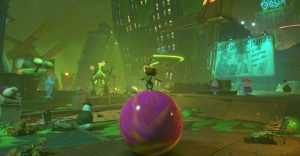Divergent: All 3 Movies Ranked, Worst To Best

Here are all three movies in the Divergenttrilogy ranked, from worst to best. Based on the explosively popular YA book series by Veronica Roth, the Divergent trilogy is set in post-apocalyptic dystopian Chicago, in the aftermath of a war that has divided society into five factions. Placed dead center in the narrative is Beatrice, or Tris (Shailene Woodley), who fulfills the oft-used trope of “the chosen one”, which is then subverted to an extent via a series of twists throughout the course of the trilogy.
Echoing the themes of authoritarian control and the threat posed to those who dare speak out against the system, Divergent follows in the footsteps of its more-nuanced YA counterparts, key being The Hunger Games series and The Maze Runner. In Divergent, Tris Prior is plummeted into action when she chooses Dauntless, leaving her old Abnegation self behind, along with her family. Once in Dauntless, Tris undergoes a transformation on a visceral level – she must overcome her innermost fears and be unflinchingly brave in the face of rebellion.
The Divergent movies can be best described as underwhelming and uneven, as the films fail to translate’s Roth’s worldbuilding to life in a convincing manner or enhance upon it in any shape or form. Nevertheless, all three films are packed with intense action sequences, along with the brewings of a love story between Tris and the enigmatic Four (Theo James), who also remains massively underdeveloped on the big screen. In order to better understand the YA trilogy in terms of its overarching themes, treatment of characters, and cinematic value, here are all three Divergent films, ranked.
3. Allegiant

Directed by Robert Schwentke, Allegiant was initially set to be the first of the two parts of Roth’s final literary installment, the second one being Ascendant. However, as Allegiant was deemed as the weakest entry in the trilogy by audiences and critics alike, the idea of a second part was dropped altogether, which effectively ended the franchise. Allegiant finds Tris venturing beyond the walled boundaries of Chicago, through the Fringe, to the Bureau of Genetic Welfare, a cloaked city hidden from the world. Apart from a mundane retelling of the plot, Allegiant emerges as virtually unwatchable due to its dull and clunky pacing, and the introduction of too many convoluted plot points that fail to feel cohesive in the end. Moreover, Allegiant lacks genuine stakes or immediacy, pitting one character against the other in a haphazard fashion, resulting in scenes that are unconvincing and overstuffed with unrealistic CGI. The result is a disappointing conclusion to a franchise that could have been objectively better, owing to its potential to be much more.
2. Insurgent

Picking up right after the events of the first film, Insurgent zooms in on Tris and Four, who are on the run after evading a coup staged by Erudite, leading to the complete breakdown of the faction system and constantly shifting allegiances. Throughout the course of the film, audiences are granted a glimpse into the inner workings of the remaining factions, namely Amity and Candor. While this works in favor of the original Insurgent books, it hardly adds anything meaningful to the film, as the plot starts miserably falling apart from this point on. It is interesting to note that while Insurgent had its weak moments, critics praised Woodley’s performance, as she dives headfirst into the role of Tris, managing to keep the audience’s attention away from a threadbare plot. Despite dealing with objectively interesting themes, such as dystopian gloom, crumbling power structure, and the complexities of identity, Insurgent only manages to echo the semblance of a generalized terror.
1. Divergent

Directed by Neil Burger, Divergent launches Tris’ saga into action, arguably in a promising manner, as it is interesting to witness her old life in Abnegation contrasted against her journey after choosing Dauntless. At its core, Divergent is about individual and collective identity, and how the latter is often reinforced at the cost of the former, which is true in the case of Tris, who wishes to live out an existence wider than socially permitted. After a series of trials and tribulations, Tris embraces her personal power and agency, along with what it means to truly be divergent. The film received mixed reviews, being criticized for its generic execution and hackneyed portrayal of teen tropes, being unfavorably compared to its YA counterparts, and how it fades in comparison. Although deeply flawed and predictable, Divergentremains the best entry in the trilogy so far.
About The Author

















